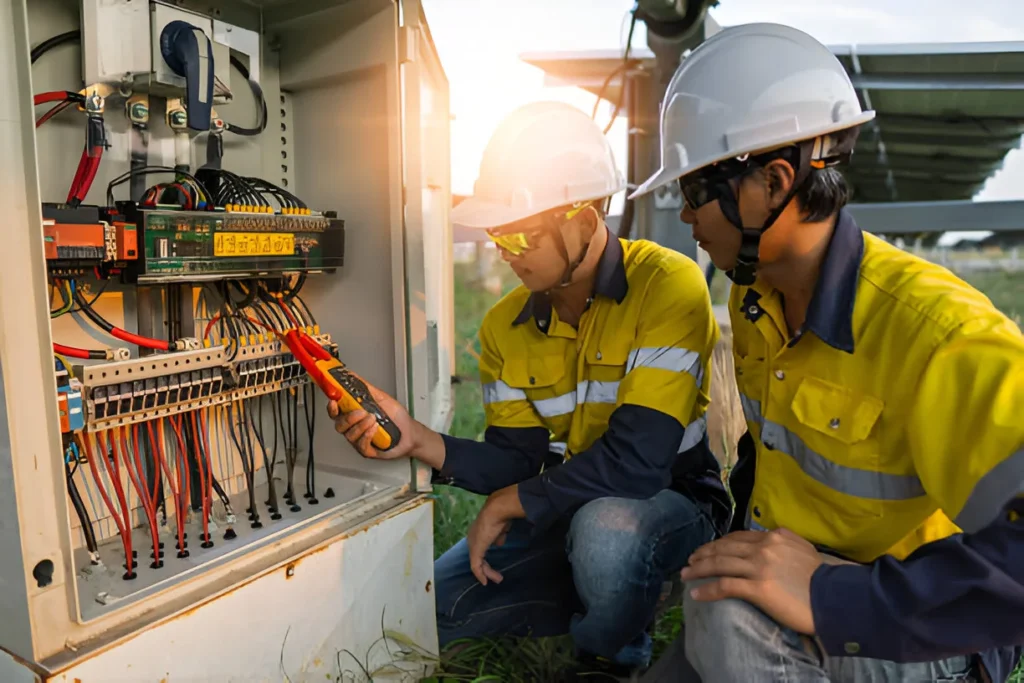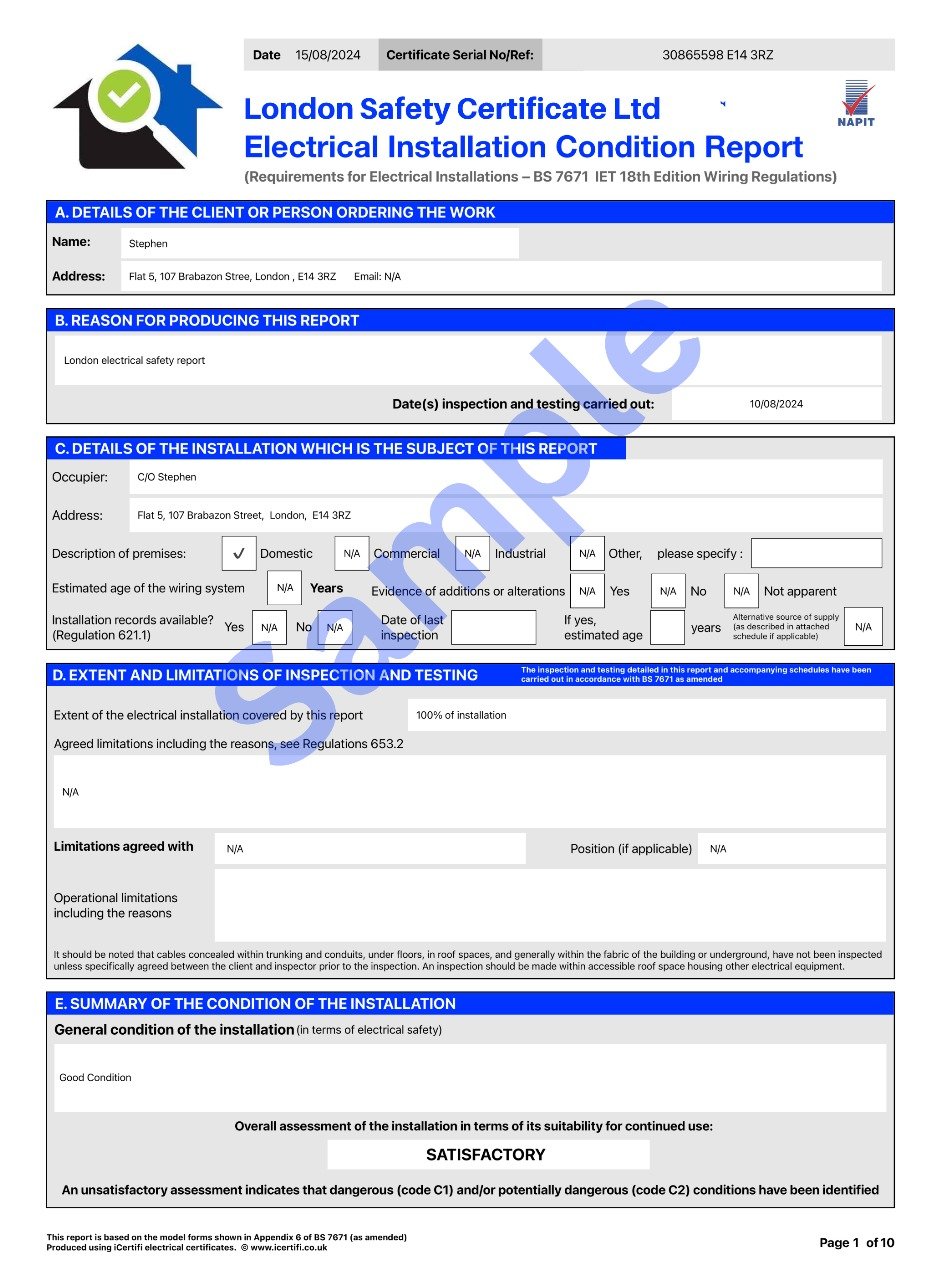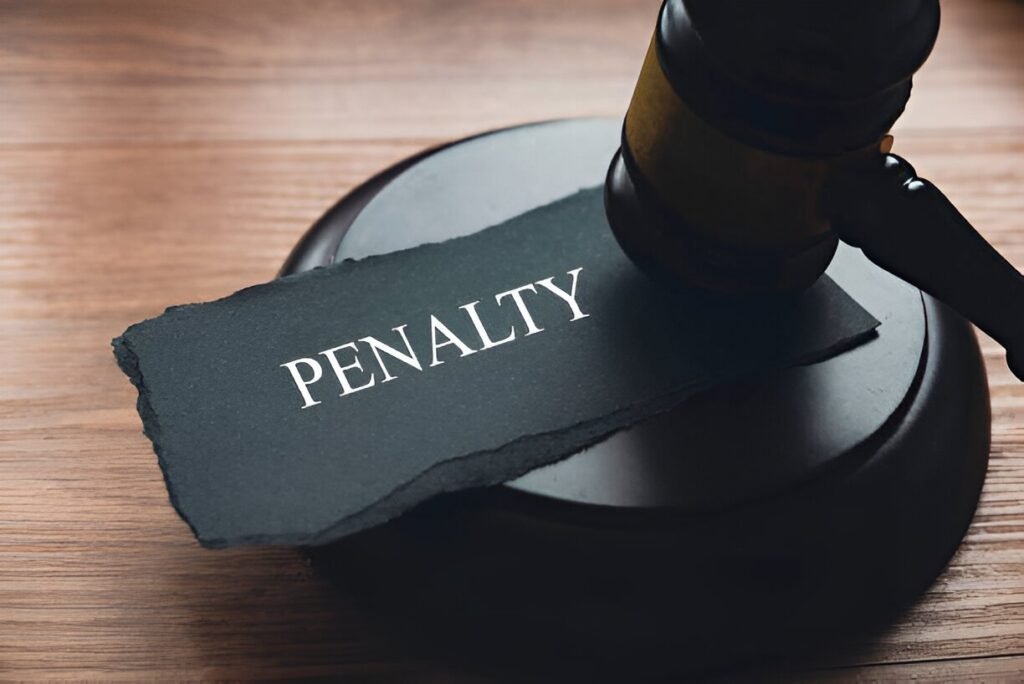Navigating the sea of landlord responsibilities, I’ve often found myself grappling with the question, “Do Landlords Need an Electrical Safety Certificate?” It’s not just about ticking a box for legal compliance; it’s also about ensuring the safety of tenants from potential electrical dangers. Having an up-to-date Electrical Installation Condition Report (EICR) is crucial. It not only helps protect your tenants but also safeguards you from potential legal repercussions.
But what does obtaining an Electrical Safety Certificate entail for landlords, and what could happen if you don’t have one? Let’s dive into these details.
Table of Content
EICR Requirement for Landlords
As a landlord in the private rented sector, understanding the Electrical Installation Condition Report (EICR) requirement, is essential for ensuring the safety of tenants and compliance with legal obligations.
It’s one of your key responsibilities to ensure electrical inspections are carried out at regular intervals, ideally every five years. These inspections aren’t just a box-ticking exercise, but a fundamental part of property maintenance and tenant protection.

A licensed electrician needs to perform a comprehensive check of the property’s electrical systems and provide an EICR detailing any faults. Non-compliance with these safety regulations can lead to significant legal repercussions.
Ensuring an up-to-date EICR is a powerful strategy towards demonstrating your commitment to tenant safety and legal compliance.
Importance and Benefits of EICR
Moving beyond the obligations that come with EICRs, let’s consider the tangible benefits and the underlying importance of these safety checks. As a landlord, your responsibilities extend to maintaining safety standards for your tenants.
Regular electrical inspections are a crucial part of this, ensuring property compliance with all necessary regulations. An EICR isn’t just a piece of paper; it’s a risk mitigation tool that identifies potential electrical issues before they escalate. This not only protects your property and tenants but also safeguards me against potential legal complications.
The peace of mind that comes from knowing your property is electrically safe is invaluable. In essence, an EICR is more than a legal requirements for landlords; it’s an integral part of responsible property management.
Obtaining an Electrical Safety Certificate
To obtain an Electrical Safety Certificate, it’s imperative that I engage a licensed electrician to perform a comprehensive inspection of the property’s electrical installations. This inspection process is thorough, focusing on the condition of the wiring, sockets, switches, and other electrical components.

It’s your responsibility as a landlord to ensure all safety regulations are met, safeguarding your tenants from potential hazards. The certification process requires rigorous compliance measures, including the correction of any identified defects. While it may seem daunting, this process is a fundamental part of landlord responsibilities.
Ensuring electrical safety isn’t just about ticking a box; it’s about ensuring the wellbeing of your tenants and the integrity of your property.
Legal Obligations and Risks
Understanding your legal obligations and the potential risks associated with non-compliance is a crucial aspect of being a responsible landlord. You must meet safety regulations, including obtaining an Electrical Safety Certificate (EICR), to prevent electrical hazards. This involves regular property maintenance and inspections by a qualified electrician to ensure the electrical installations are safe.
Failure to comply with these regulations can lead to legal consequences, including hefty fines. As a landlord, your responsibilities extend beyond providing a roof over your tenant’s head – You are also liable for their safety. You can’t ignore the potential electrical hazards that could put them at risk. Not only could this result in legal action against you, but it could also have severe human cost.
Tenant Safety and Financial Penalties
While you are well aware of the legal implications of non-compliance, it’s equally important to consider the safety of your tenants and the financial penalties that can result from negligence.

Our risk assessment strategy includes regular inspections, following the guidelines to ensure the electrical systems are in order. This isn’t merely a liability protection measure; it’s also about taking responsibility for the safety of those who live in your properties.
The importance of compliance can’t be overstated, with substantial potential penalties. Safety measures such as routine inspections and immediate addressing of identified issues are crucial. They not only uphold the safety standards but also contribute to a sense of trust and security with your tenants, which is priceless.
Remedial Actions for Non-Compliance
If non-compliance issues do crop up, swift and decisive action is key to rectifying these problems and avoiding potential fines or legal repercussions. Compliance measures should be promptly implemented, which may involve hiring a licensed electrician for a thorough inspection according to guidelines. They’ll identify necessary repairs or upgrades and provide valuable maintenance tips.
Safety precautions, such as ensuring the use of compliant electrical appliances and regular testing of safety switches, are crucial. I consider risk management an ongoing process, so regular inspections and prompt action on identified faults are essential.
But what does obtaining an Electrical Safety Certificate entail for landlords, and what could happen if you don’t have one? Let’s explore whether “Do Landlords Need an Electrical Safety Certificate” and delve into the details of this essential requirement.
Frequently Asked Questions
What Happens if a Landlord Fails the EICR Inspection and How Can They Rectify the Situation?
If I fail the EICR inspection, I’d face potential penalties. To rectify this, I’d need to carry out recommended repairs and arrange a re-inspection. Compliance methods include regular maintenance and safety checks.
Who Is Responsible for the Cost of Obtaining an Electrical Safety Certificate: the Landlord or the Tenant?
As a landlord, you are responsible for the cost of obtaining an Electrical Safety Certificate. It’s part of your obligation to meet safety regulations, ensure certificate validity, and manage inspection frequency to avoid legal implications.
How Can a Landlord Verify if an Electrician Is Qualified to Perform an EICR Inspection?
As a landlord, I’d verify an electrician’s qualifications to perform an EICR inspection by checking their accreditation, assessing their hiring process, scrutinizing their training, and validating their credentials, ensuring they’re competent for the task.
What Should a Landlord Look for in a Landlord Insurance Policy in Relation to Electrical Safety?
As a landlord, I’d look for policy coverage that includes electrical safety standards, understand the insurance limitations, identify policy inclusions related to electrical issues, and familiarize yourself with the claim process.
How Does the EICR Inspection Process Differ for Commercial Properties Compared to Residential Properties?
As a landlord, commercial properties often face stricter regulations and more frequent inspections than residential ones. The safety standards are higher due to commercial property challenges like increased electrical usage, making the EICR process more rigorous.
Conclusion
In conclusion, as a landlord, I can’t stress enough the significance of an EICR. It’s not just a legal necessity, but a vital measure to ensure your tenants’ safety.
The process might be a bit inconvenient, but it’s a small price to pay for peace of mind and potential financial benefits. Failing to comply can lead to severe penalties. So, I always make sure to keep your electrical safety certificate up-to-date. It’s simply good business sense.


